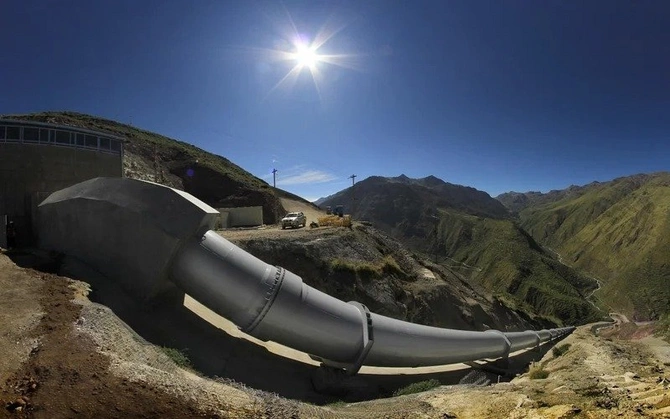
Photo credit: Kazinform / Freepik / Midjourney
On May 12, the tanker Aktau departed from Kazakhstan’s Port of Aktau carrying the country’s three-millionth ton of oil and arrived at Azerbaijan’s Sangachal Terminal on May 13, highlighting the transport corridor’s significance for Kazakhstan’s energy sector, The Caspian Post reports citing Kazinform.
An important step for bilateral cooperation
The first batch of oil from Kazakhstan’s Tengiz oilfield was delivered to Baku in March 2023. Later, in 2005, the first batch of Kashagan oil arrived in Azerbaijan.
As before, Kazakhstan exports its oil via strategically vital Baku-Tbilisi-Ceyhan pipeline, which delivers hydrocarbons to the international ports, from where they are supplied to the global markets.
Planned increase in volumes
In 2025, Kazakhstan plans to transit 1.7 million tons of oil through the Baku-Tbilisi-Ceyhan pipeline, in accordance with a long-term oil supply expansion plan.
Recall that in March 2024, Kazakhstan and Azerbaijan signed the Agreement on Phased Increase in the Volumes of Kazakh Oil Transit across the Territory of the Azerbaijan Republic . As per the document, Kazakhstan plans to raise its oil transit to 2.2 million tons per annum.

In January 2025, SOCAR Midstream Operations LLC entered into an agreement with KMG Trading, a subsidiary company of Kazakhstan’s KazMunayGas, to transit 240,000 tons of oil from the Kashagan deposit through Azerbaijan. The first batch of this oil was sent from Aktau Port in late January and has successfully arrived at Sangachal Terminal in Azerbaijan.
Increasing oil transit volumes
As supply volumes increase, the quality of oil itself must be taken into account. By 2030, oil production in Azerbaijan may decline to 25 million tons, and oil exports may drop to 20 million tons, which opens opportunities for a joint flow with Kazakh oil. However, there is a question of quality: the oil from Kashagan and Tengiz is rich in sulfur which, in turn, may impact Azeri Light crude oil. The decision could be eighter purification or introduction of Oil Quality Bank system.
Apart from that, according to experts, in order to successfully transport 20 million tons of oil, it is important to upgrade the quality of Kazakh raw materials and to build new pipelines and compressor stations, to solve environmental and political problems associated with the Trans-Caspian oil pipeline. Undoubtedly, this project requires huge investments and time costs, while its successful implementation directly depends on coordination efforts of all Caspian states.

Forecast for the future
In general, development of Kazakh oil transit through Azerbaijan becomes an important component of the common strategy on diversification of energy routes and deepening bilateral ties. With the increase in supply volumes, it is expected that Kazakhstan and Azerbaijan will be able to strengthen their positions in the global energy markets, as well as increase economic interdependence, which in turn will have a positive impact on the region’s economy as a whole.
Earlier it was reported that Kazakhstan’s major oil refineries increased their output to 6.092 million tons in January-April 2025, up 10.8% year-over-year.
Share on social media